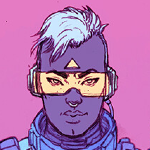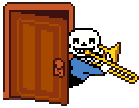|
I usually have a story mostly written in my head before I open the word doc. Of course then sometimes it changes when I start writing but whatevs.
|
|
|
|

|
| # ? Apr 18, 2024 16:11 |
|
I started a novel today. I'm not afraid of not finishing it (I have a good track record) but I am afraid of ending up with something Bad because of insufficient planning, a weak plot, etc etc etc. The last long piece of writing I made ended up at 60k, but I have no idea what to do with it. It doesn't feel long enough for a novel to me, and besides I've stared at it for so long while I got through the second draft that I no longer even know whether or not it's any good. showbiz_liz posted:my writing teachers all said that you had to start out writing literary fiction even if you wanted to write SF in order to get the fundamentals down. Maybe I'm biased because I write mostly fantasy, but that is weird advice. "The fundamentals" are the same no matter the genre imo.
|
|
|
|
writing is great and fun but it is also miserable and awful
|
|
|
|
anime was right posted:writing is great and fun but it is also miserable and awful Not empty quoting. Even the best writing groove has a little bit of a "pulling teeth" quality to it. Most of the time it feels like slowly prying a rusty nail out of my brain. But then afterward I feel the most pride I've ever felt about anything I've ever made.
|
|
|
|
there's a daily writing prompt thread in cc, which might be a good way to get your fingers used to rattling out words.
|
|
|
|
How do you guys decide where to put in chapter breaks? Good cliffhangers or ends of scenes? How much variance in chapter length is too much?
|
|
|
|
I go into a chapter with a loose notion of what I want to happen in that chapter; when that's been done, I close off when the last necessary scene is done. I try to keep them relatively uniform in length but, eh, whatever.
|
|
|
|
TequilaJesus posted:What's everyone's thoughts on spicing up dialogue tags? One person in my writing group says I use "he said" too much. When I try to throw in "he replied/he asked/he interrupted/he shouted" etc., another will tell me I need to stick with "he said." If you're feeling really cool you could just skip that stuff entirely and throw em dashes in front of everything (though this does require you to have characters with pretty distinctive voices). showbiz_liz posted:I think this is more of a thing in short fiction, but it's definitely a thing. One of my favorite short stories ever is The Author of the Acacia Seeds by Ursula K. LeGuin, which is just a collection of three articles from a fictional journal about the literature of animals. (It's very short, so I recommend reading it, even if just to argue with me about whether it counts as a story!) I read 'literary' fiction almost exclusively and was thinking of that when I wrote that post, so I don't think so(though I'm sure there's sci fi and so on that does do that).
|
|
|
|
A human heart posted:If you're feeling really cool you could just skip that stuff entirely and throw em dashes in front of everything wait what edit: no you can't that's dumb
|
|
|
|
Chairchucker posted:wait what Bill Gaddis did it and it was good, not seeing the problem here.
|
|
|
|
every deviation from the norm is a risk, friendo
|
|
|
|
You aren't mr gaddis
|
|
|
|
Okay to make it more succinct than just a knee jerk reaction : when you give beginning writers advice (and honestly, if someone asks the "said" question they have to be a beginner), it's not good form to tell them to do something that deviates from the usual practice, since a writer need to be well informed of the usual method to know when the deviation works. I haven't read the works of Bill Gaddis (nor do I know who he is) but I have to assume he is seasoned enough to make that choice and not make it an awful gimmick.
|
|
|
|
It's pretty common in European (definitely French) writing, combined with guillemet dialogue tags. It can be very confusing if you're not used to it.example posted:The boy walked up and shook her hand. Phil Moscowitz fucked around with this message at 15:37 on Mar 7, 2017 |
|
|
|
That looks horrible
|
|
|
|
I've even seen the line go on after the "said"-tag for maximum confusion. quote:-- Hello, she said. How are you doing?
|
|
|
|
Quotation dashes are fine, you big babies. Trust your readers a little, why don't you?
|
|
|
|
Okua posted:I've even seen the line go on after the "said"-tag for maximum confusion. sometimes its fun to coopt this style if you're writing something quick that's supposed to feel old tho which is fun even if its probably a bad idea
|
|
|
|
I've seen M-Dashes for dialogue in three places 1) modernist/postmodernist authors trying to break the rules to make a point 2) very old European authors 3) people trying to evoke very old European authors Here's a general guideline: if you're going to break the rules, know what it means to break them. It feels to me like m-dash dialogue has a very restricted set of uses, beyond which it's ugly and distracting. Maybe you want it to be ugly and distracting (in which case, cool) but be aware of the response it gets.
|
|
|
|
In a jarring change of tone, here is some handwritten writing advice I randomly got from an 80 year old poet at an open mic While I'm not sure how helpful a lot of the advice actually is, I thought it was really sweet, plus she writes legitimately amazing poetry. And I say that as someone who doesn't really 'get' poetry.   
|
|
|
|
Sitting Here posted:In a jarring change of tone, here is some handwritten writing advice I randomly got from an 80 year old poet at an open mic I like these
|
|
|
|
Safety Biscuits posted:Quotation dashes are fine, you big babies. Trust your readers a little, why don't you? Thank you
|
|
|
|
The Saddest Rhino posted:Okay to make it more succinct than just a knee jerk reaction : when you give beginning writers advice (and honestly, if someone asks the "said" question they have to be a beginner), it's not good form to tell them to do something that deviates from the usual practice, since a writer need to be well informed of the usual method to know when the deviation works. I haven't read the works of Bill Gaddis (nor do I know who he is) but I have to assume he is seasoned enough to make that choice and not make it an awful gimmick. Is there like a stone tablet somewhere that says 'usual practice' that all the new writers need to adhere to or something
|
|
|
|
TequilaJesus posted:How do you guys decide where to put in chapter breaks? Good cliffhangers or ends of scenes? How much variance in chapter length is too much? I write pulpy poo poo, but I always try to make sure my chapters include three things: 1.) An element of progress along the main story arc (An old mentor teaches Barack about Sauron's secret weakness: love). 2.) A smaller arc that's started and completed within the chapter, even if it's fairly insignificant (Barack orders a P'zone, it arrives!). 3.) A cliffhanger or mystery at the end that compels readers to keep reading (Barack gasps. "What's this beautiful diamond ring doing in my P'zone?!"). I almost always plan these three things before I start writing a chapter. When I've gotten them all on the page, chapter's done. Trustworthy fucked around with this message at 15:46 on Mar 9, 2017 |
|
|
|
A human heart posted:Is there like a stone tablet somewhere that says 'usual practice' that all the new writers need to adhere to or something Uh... are you mad at me or something?
|
|
|
|
Trustworthy posted:I write pulpy poo poo, but I always try to make sure my chapters include three things: 1.) An element of progress along the main story arc (An old mentor teaches Barack about Sauron's secret weakness: love). 2.) A smaller arc that's started and completed within the chapter, even if it's fairly insignificant (Barack orders a P'zone, it arrives!). 3.) A cliffhanger or mystery at the end that compels readers to keep reading ("What's this diamond ring in my P'zone?" perplexedly asked Barack.). That's very helpful, thank you! 
|
|
|
|
A human heart posted:Is there like a stone tablet somewhere that says 'usual practice' that all the new writers need to adhere to or something nahdowhatyouwantbutsomerulesaregoodandmakeiteasiertoreadyourwriting
|
|
|
|
A human heart posted:Is there like a stone tablet somewhere that says 'usual practice' that all the new writers need to adhere to or something yes
|
|
|
|
Some people really need to be told to reign it in and learn the rules, but the way I was initially taught creative writing was kind of paralyzing, because it had me convinced that the main focus of learning to write should be constant vigilance for all the mistakes I was sure to make, instead of like... trying to come up with interesting ideas and express my thoughts on paper and have fun with it.
|
|
|
|
A human heart posted:Is there like a stone tablet somewhere that says 'usual practice' that all the new writers need to adhere to or something They are welcome to ignore this thread! This is one of my most favorite internet things. Someone is like "here is what I think about [topic]" and someone else comes in like WHY DO YOU THINK YOU'RE THE BOSS OF EVERYONE?! It's like, this is a thread on an ancient irrelevant comedy forum, not a mandate from the queen of literature (sorry dockloc). But honestly, I've critiqued a ton of amateur fiction. Many, many new writers are basically relearning how to communicate. The language of description, exposition, dialog, and action is different than the language we use to chat with coworkers or write facebook messages. Like every language, it has rules that you can bend or break depending on how well you know them. When you're learning a new language, you learn the grammatical structure and usually common, useful phrases at first. If you're learning French, you're not going to go from 0 to elaborate french poetry, that would be dumb and confusing. And even if you translated that poetry successfully, it wouldn't give you a very good idea as to how to have an ordinary conversation with a french person. I think writing is a bit the same way; if you're a new writer and you want to be the next Pynchon, or whatever, and you want to go straight from "blithering amateur" to "avant garde darling", you are going to end up skipping a lot of rules/tools that could be potentially useful. There are always outliers. There are people whose vision or genius surges through them, regardless of practice or education, and produces something that engages the reader. You have outsider artists and people who fill a niche just by virtue of having the right aesthetic at the right time. There are all kinds of scenarios where, yes, someone who didn't learn "the rules" finds success and is able to communicate something valuable to the reader. But it's basically impossible to tell people how to accomplish that. And frankly, I meet a lot of MFAs who are trying so goddamn hard to break the rules just for the sake of breaking them because their professor told them that, for example, genre fiction is trash. These are the kind of people who have to tell you all of their writing qualifications and accolades before you ever read/hear their story, as if the reader needs to be reassured, "Don't worry, you're in professional hands"  Regarding this thread, Dr. Kloctopussy wrote it with her audience in mind. Creative Convention is full of people who want to write plot/character driven fiction, so that is what our discussion has been oriented around for the last few years. Other approaches to literature are welcome (and maybe even much needed, IDK), but it helps if you, ya know, actually have something to talk about. Right now you're basically stomping into a thread to say I DON'T LIKE THE CONVERSATION YOU'RE HAVING ABOUT FICTION, without contributing much yourself. Also, there are still plenty of people who are happy to discuss non-traditional approaches to writing. A couple of them have posted within the last page! But I think you are mainly here to be contrarian, and not to build a constructive conversation together. showbiz_liz posted:Some people really need to be told to reign it in and learn the rules, but the way I was initially taught creative writing was kind of paralyzing, because it had me convinced that the main focus of learning to write should be constant vigilance for all the mistakes I was sure to make, instead of like... trying to come up with interesting ideas and express my thoughts on paper and have fun with it. Writing is part exploration and part execution, IMO. The exploration period is where you should allow yourself to have fun and give no shits. The execution part is where you have to bust out the lash and start self-flagellating.
|
|
|
|
Literally in the OP  Dr. Kloctopussy posted:Can I punctuate my dialogue in this totally neat, unconventional way like Cormac McCarthy? Yes you can! Safety Biscuits posted:Quotation dashes are fine, you big babies. Trust your readers a little, why don't you? It's not about trusting your readers, it's about them trusting you. If you want to make things challenging to read, great, but there better be an increased payoff for the increased effort. You're unlikely to meet your side of that bargain if you are just throwing in unusual stuff so you can feel cool. Deviations from the norm (and yeah, there is a norm, don't freak out), should contribute something to the piece. Furthermore, as a beginner, you're not going to have name recognition to carry people through a fair amount before they give up. Whatever unusual thing you are doing needs to be handled with finesse. That requires thinking about what you are doing and why. Unless of course you are just a natural genius who intuitively writes unconventional masterpieces by just doing whatever the gently caress you want, in which case, go forth and do. showbiz_liz posted:Some people really need to be told to reign it in and learn the rules, but the way I was initially taught creative writing was kind of paralyzing, because it had me convinced that the main focus of learning to write should be constant vigilance for all the mistakes I was sure to make, instead of like... trying to come up with interesting ideas and express my thoughts on paper and have fun with it. I agree that focusing on all the mistakes you could make can be stifling, but when people are asking for advice on specific things, I don't think it would be helpful to always respond with “don't worry about it, just go have fun!” Still, I did try and capture that general approach in my first posts, which are short on identifying potential mistakes, and long on encouraging people to experiment and figure out what works for them. As for writing things on stone tablets, it's an advice thread and no one wants to qualify literally every single sentence with “in my opinion” or “sometimes” or whatever else. It's not helpful to argue everything as though it were an absolutist view, because yeah, there are exceptions to every rule, etc. etc. (I actually addressed this exact thing in the Write More post above!) Exceptions are good to discuss because they show how rules can be pushed and how that can work in certain situations, but dismissing advice that would be helpful 98% of the time because there are some exceptions is kinda silly. As for advice on prose style, I think it is nearly impossible to give general advice. That's why read more is one of the key pieces of advice in this thread. It's even in the title! Reading a lot is going to expose you to (probably) successful uses of different prose styles. From there you can start exploring your own. Prose really needs to be evaluated within the context of a specific work (or group of works). No one can say “yes, that prose style works,” without reading it. If you have specific questions about prose style, I am sure many people will be happy to share their thoughts. Personally, I find the concept too vague to even start. Do you mean advice for how to improve your prose (vs. your writing overall)? A discussion of prose styles other authors have used, and their characteristics and benefits? Or advice for how to find and develop your own prose style? Something else? Finally, I don't agree with you that everything else comes from prose style and language. Rather, prose style and language reflect and actuate everything else. The substance of the work proceeds its execution.
|
|
|
|
Writing is first and foremost a communication of ideas from the author to the reader, and one of the most persistent problems amateur writers have is prose getting in the way of their ideas. This applies across all genres and styles. Effectively conveying ideas is difficult. A lot of the advice people give (especially in this thread, or in places like Thunderdome) is meant to develop the writer's ability to effectively convey their ideas. There's nothing inherently wrong with a stylistic choice, but a super common mistake amateur writers make is focusing on their stylistic choices to the detriment of conveying their ideas. This is something I did for a while when I started out writing. I was so concerned with these weird flourishes I could do (intercut paragraphs with no punctuation! write like a fake textbook! do it all in a transcript style!) that I was spending more time on the style of my writing as opposed to the content of it. Now, style is important. But it's not more important than content, and that also applies across genres. Something plain and meaningful is better than a flashy nothing. I'm not pulling this out of nowhere or reading it off my Code of Hammurwritebi, by the way. This comes from having spent like eighteen weeks judging amateur fiction written by goons. Prose style is an important part of writing, but it's something you discover as you build your skills, it's not the first thing to ever work on. It'd be like trying to learn a drawing style first, before you have a solid grasp on form or texture or anatomy. I can sympathize a lot with showbiz_liz cause there's a lot of weird ways writing gets taught between high school classes that focus just on essays, electives meant to broaden your vocabulary, and college programs run by professors with grudges so old the grudges themselves have tenure. Djeser fucked around with this message at 23:22 on Mar 9, 2017 |
|
|
|
anime was right posted:every deviation from the norm is a risk, friendo
|
|
|
|
write is bad
|
|
|
|
ravenkult posted:write is bad Quit designing covers, son, you've got the chops to make it as a Goodreads Reviewer
|
|
|
|
lol thinking people will read the op
|
|
|
|
A Human Heart, has anybody ever told you that you're needlessly abrasive? You asked a question, people answered it, then you insulted the people who answered it. You don't get to act like the !!!ONLY MATURE ADULT!!! if you refuse to court anybody who politely disagrees with you.
|
|
|
|
It's not even that the norm is necessarily the "best" way of doing things. I find McCarthy style em dashes easier to follow. The reason I don't (often) use them is that I understand that when a reader sees unconventional punctuation an undue amount of their attention is drawn to it. You better be drat sure your dialogue is flawless before you shine a spotlight on it like that. Every tiny mistake will be stand out. That said if you're doing something that already draws attention to the dialogue (say a dialogue-only story) they may be appropriate, just for the sleeker look on the page. George Saunders' novel, Lincoln in the Bardo has very strange dialogue (if I could call it that) attribution, but it is very clear why he's done it, and he has the mastery to not only make it work, but to fill the possibilities that it opens up. Can you really say that about your em dashes?
|
|
|
|
no ur writing wrong let me do it 4 u
|
|
|
|

|
| # ? Apr 18, 2024 16:11 |
|

|
|
|




















